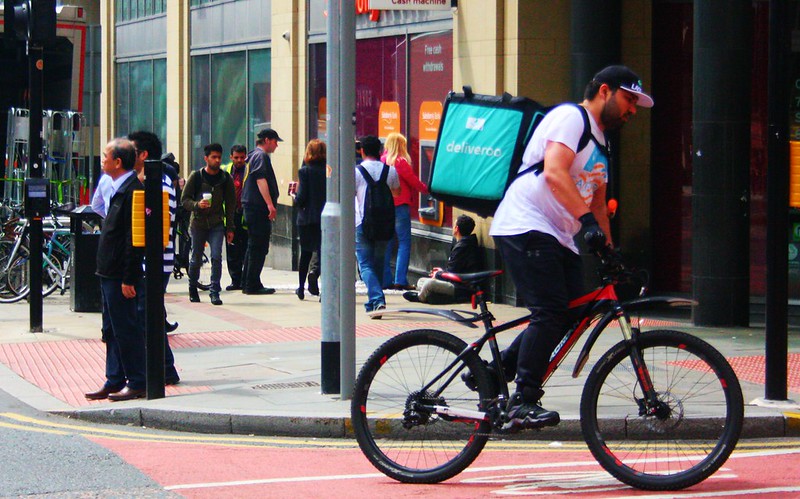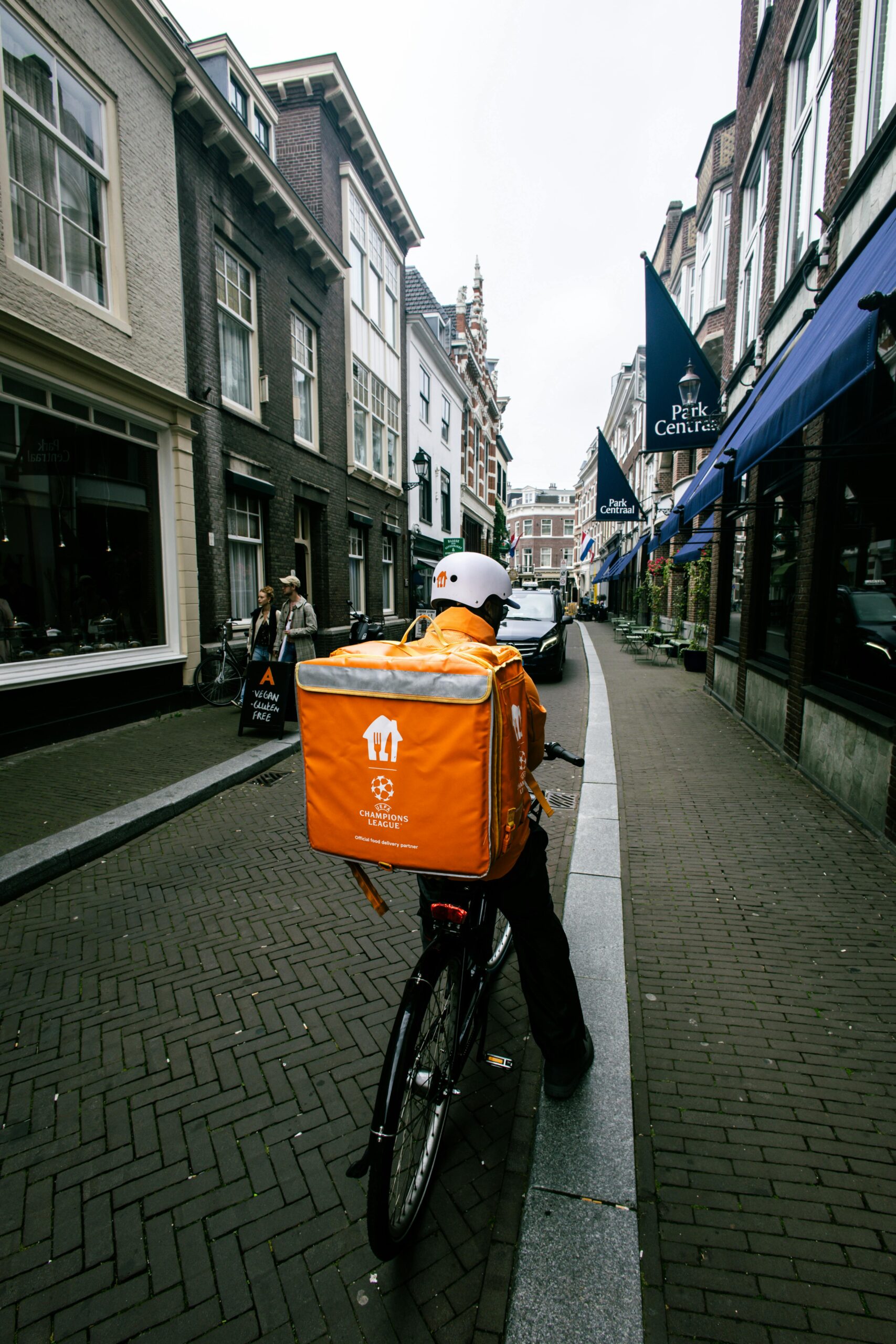Project Description:
Voice of the Cavaleiro (VoCa) aims to pilot a participatory data collection of the occupational and urban hazards facing delivery bicycle riders for increased workers’ rights and work protections, changes to the urban built environment, and empower migrant, refugee, and marginalised communities. To document the most pressing occupational and urban hazards experienced by the delivery riders in the city, they will codesign VoCa and lead the data collection by (1) fitting their bicycles with sensors to detect the proximity of automobiles and air and noise pollution; (2) wearing FitBits to measure physiological biomarkers of stress; and (3) participate in mapping where there are assets and where they have experienced racism, violence, or felt unsafe. The maps they create will be shared publicly to help support policy change (such as improved worker rights) and improvements in the built environment (such as protected bike lanes).
Project Type: Kick Starting Grant
Theme: Justice and Equity, Health
Mentor:Louise Francis
VoCa: Amplifying the Voice of Delivery Riders for Safer Cities
Voice of the Cavaleiro (VoCa) is an innovative, participatory data collection initiative designed to address the occupational and urban hazards faced by delivery bicycle riders in Dublin. The project’s core mission is to advocate for enhanced workers’ rights, improve urban infrastructure, and empower marginalised communities, particularly migrants and refugees. Delivery riders in Dublin navigate one of Europe’s most traffic-congested cities, contending with hazardous road conditions, significant air and noise pollution, and challenging social conditions, including precarious employment, racism, and a growing anti-migrant sentiment. VoCa aims to document these pressing hazards by involving delivery riders as citizen scientists and drive policy changes that enhance both working conditions and the built environment.
At the heart of the project is a participatory approach that places riders at the center of the research process. Through co-designed data collection efforts, riders gather valuable information using various methods. Bicycles are equipped with sensors that detect the proximity of automobiles and measure air and noise pollution, including levels of particulate matter and nitrogen dioxide (NO₂). This real-time data captures the environmental hazards riders encounter daily. Additionally, riders wear FitBits to monitor physiological biomarkers of stress, such as heart rate and activity levels, providing insights into the physical and emotional toll of navigating a hazardous urban environment.

Participatory mapping forms another crucial component of VoCa. Delivery riders actively map the city, identifying collision hotspots, hazardous infrastructure, and areas where they have experienced racism, violence, or feelings of insecurity. These maps also highlight community assets and safe spaces. By co-creating these detailed maps, riders contribute essential data that will be publicly available to advocate for policy changes and infrastructure improvements, such as protected bike lanes.

Community engagement has been fundamental to VoCa’s success. Strong relationships with delivery riders and local organizations have facilitated recruitment and built trust within this often marginalised group. Collaborating with informal community leaders and supportive institutions has ensured that the voices of migrant and refugee workers are heard and valued. This participatory model fosters collaboration between riders, scientists, and the broader public, creating a collective effort to address delivery riders’ challenges.
The IMPETUS program has played a pivotal role in launching and sustaining VoCa by providing essential support. Mentorship from experts such as Louis Francis of Mapping for Change has enhanced the project’s approach to participatory mapping and data analysis. Additionally, IMPETUS training courses on citizen science project development have equipped early-career researchers with the skills to design and implement the initiative effectively. Financial support from IMPETUS enabled the purchase of sensors and other necessary equipment, laying the foundation for the project’s data collection efforts.
Looking ahead, the data collected through VoCa will be showcased in a public exhibition featuring participating riders. This exhibition will raise awareness and serve as a platform to advocate for change. Given that delivery riders face similar challenges in cities across the European Union and beyond, VoCa’s findings can inform a larger participatory action research program, potentially funded by initiatives like EU Horizon.
VoCa aspires to create a lasting impact by promoting policy reforms that protect delivery riders and enhance urban infrastructure. The project seeks to transform urban environments into safer, more inclusive spaces by amplifying the voices of those who navigate our cities daily. Through collective action and data-driven insights, VoCa aims to ensure that all workers, regardless of background, are valued, protected, and empowered, fostering cities where everyone can thrive.



